Aim for 7 questions.
With 7 questions, your quiz is long enough to cover the subject but quick enough to be easily completed. To make sure all 7 questions are the best they can be, start by brainstorming 14 questions and then eliminate any that aren’t fun, are too difficult, or don’t correlate well with your outcomes.
Keep it short and simple.
Questions shouldn’t require too much thought to answer and should be kept to just a simple sentence. As for answers, one word is best, but 2-4 word phrases are OK in moderation.
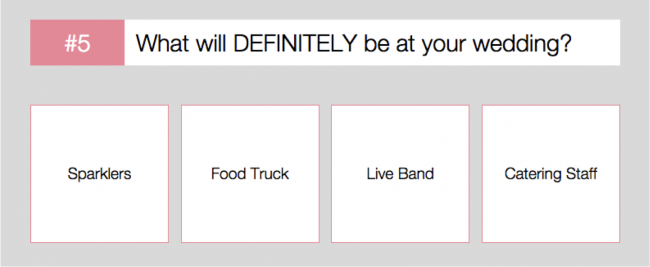
Don’t make your questions too obvious.
If you are writing a quiz about what car you should drive, don’t make one of the questions, “What kind of car do you want?” While that may be an extreme example, you should make sure that none of your questions or answers point too obviously to a particular outcome. Also, keep in mind that your questions don’t necessarily need to be related to the topic of the quiz. As long as the question has a purpose and helps lead to an outcome, it can be about anything.
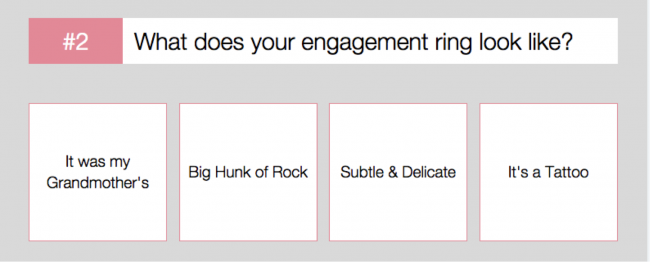
Pay attention to the order of your questions.
To capture people’s attention, start your quiz with your second-most exciting question. Then finish it off with the most exciting to go out with a bang. Keep the most difficult questions that might require more thought in the middle, so that by the time people get to them they are already committed.
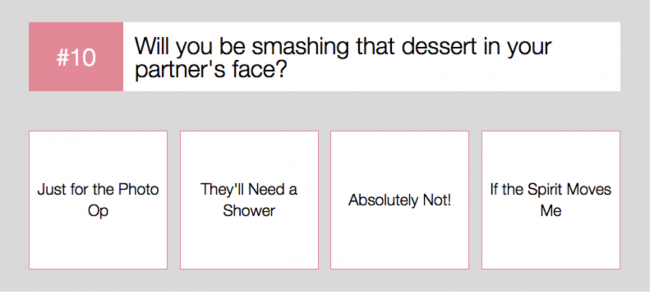
Have a consistent number of answers.
Each question you write should have the same number of answers, unless you have a specific reason for changing that number (i.e. a Yes or No answer). Aim for between 4-6 answers per question. You should also make an effort to vary the punch line – sometimes put the funniest answer at the end while other times lead with it.
Make sure there’s an answer for everyone.
When you are writing the answers, make them all uniquely different and cover the full spectrum of options. No one wants to be forced to pick an answer that doesn’t work for them. One useful strategy is to think of your answers in terms of high, medium, low, and no interest. One answer is for someone extremely interested in the topic, one is for someone with average interest, one is for someone mildly interested, and one is for someone with no interest in the topic at all.
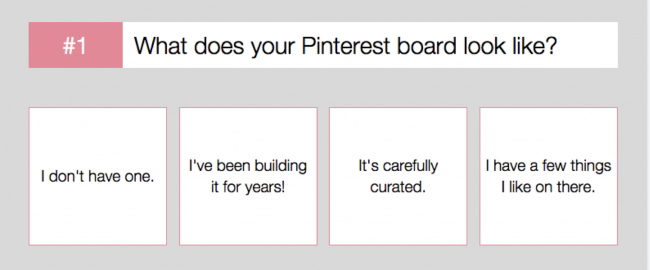
Be careful with pop culture references.
When you are considering using a pop culture reference in your quiz (i.e. “Who is your favorite sitcom character?”), first consider your target audience – will they get these references? People might give up on your quiz if they don’t understand the question, so be sure all of the people or characters you include are widely recognizable.
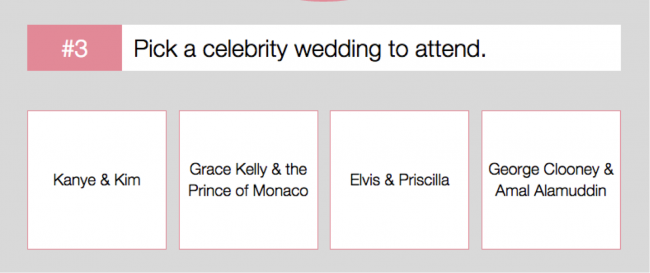
The most important thing to remember when creating a quiz is to leave time for testing. Send your completed quiz around to your friends, coworkers, and family members and make sure they enjoy the process of taking it and are happy with their outcomes before you make it public.






